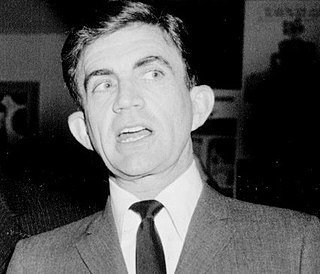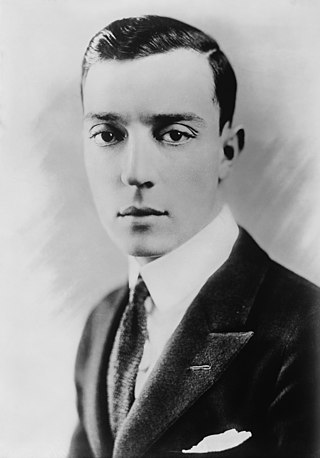See also
- "Big Spender", a song
- Big Spender (TV series)
Spender was a BBC television drama between 1991 and 1993.
Spender may also refer to:

Comedy film is a film genre that emphasizes humor. These films are designed to amuse audiences and make them laugh. Films in this genre typically have a happy ending, with dark comedy being an exception to this rule. Comedy is one of the oldest genres in film, and it is derived from classical comedy in theatre. Some of the earliest silent films were slapstick comedies, which often relied on visual depictions, such as sight gags and pratfalls, so they could be enjoyed without requiring sound. To provide drama and excitement to silent movies, live music was played in sync with the action on the screen, on pianos, organs, and other instruments. When sound films became more prevalent during the 1920s, comedy films grew in popularity, as laughter could result from both burlesque situations but also from humorous dialogue.

Blake Edwards was an American film director, producer, screenwriter, and actor.

Joseph Frank "Buster" Keaton was an American actor, comedian and film director. He is best known for his silent films during the 1920s, in which he performed physical comedy and inventive stunts. He frequently maintained a stoic, deadpan facial expression that became his trademark and earned him the nickname "The Great Stone Face".

Harold Clayton Lloyd Sr. was an American actor, comedian, and stunt performer who appeared in many silent comedy films.
Mistake(s) may refer to:
The Big Show may refer to:
Handle with Care may refer to:
Warning may refer to:
Notorious means well known for a negative trait, characteristic, or action. It may also refer to:
Winner(s) or The Winner(s) may refer to:

"Big Spender" is a song written by Cy Coleman and Dorothy Fields for the musical Sweet Charity, first performed in 1966. Peggy Lee was the first artist to record the song, also on the album of the same name. It is sung, in the musical, by the dance hostess girls; it was choreographed by Bob Fosse for the Broadway musical and the 1969 film. It is set to the beat of a striptease as the girls taunt the customers.
Don't, Dont, or DONT may refer to:

Rosemary Theresa Theby was an American film actress. She appeared in some 250 films between 1911 and 1940.
The Big Town may refer to:

First Family is a 1980 American comedy film written and directed by comedian and actor Buck Henry, and starring Bob Newhart, Madeline Kahn, Gilda Radner, Harvey Korman, Rip Torn, Austin Pendleton, Fred Willard and Richard Benjamin. It received negative reviews.
Cheer Up may refer to:
The Spender is a 1919 American silent comedy film, directed by Charles Swickard. It stars Bert Lytell, Thomas Jefferson, and William V. Mong, and was released on January 6, 1919.
The Big Killing may refer to:

The Spenders is a 1921 American silent comedy film directed by Jack Conway and starring Claire Adams, Robert McKim and Joseph J. Dowling.

Harold Holland was a British theatre and silent film actor and playwright. He was born in Bloomsbury, London. He played Dr. Rogers in the 1913 film Riches and Rogues, and took the lead role of Dr. Thomas "Tom" Flynn in the 1914 comedy The Lucky Vest. After having worked on Charlie Chaplin films including Shanghaied and The Bank in 1915, he was hired by the Morosco Photoplay Company in 1916 as it expanded.